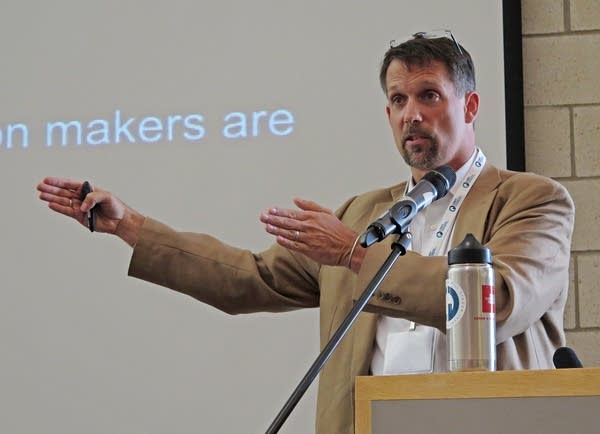Climate change educator: School classrooms must catch up with science

Frank Niepold, climate education coordinator at the National Oceanic and Atmospheric Administration, spoke to a group of about 70 teachers at the School of Environmental Studies in Apple Valley, Minn., on June 17, 2015.
Elizabeth Dunbar | MPR News
Go Deeper.
Create an account or log in to save stories.
Like this?
Thanks for liking this story! We have added it to a list of your favorite stories.


